Step into the inspiring world of Wycombe Abbey as House of Coco Magazine brings you an exclusive interview with the visionary Headmistress, Jo Duncan.
In this insightful conversation, Jo shares the remarkable journey of Wycombe Abbey’s recent developments, the school’s global aspirations in girls’ boarding education, and the profound impact of its founding values.
As a leader dedicated to academic excellence, talent development, faith, and service, Jo Duncan imparts wisdom and guidance for young girls aspiring to make a positive difference in the world.
Join us on a captivating journey into the heart of education and empowerment, guided by the passionate and accomplished Headmistress of Wycombe Abbey….
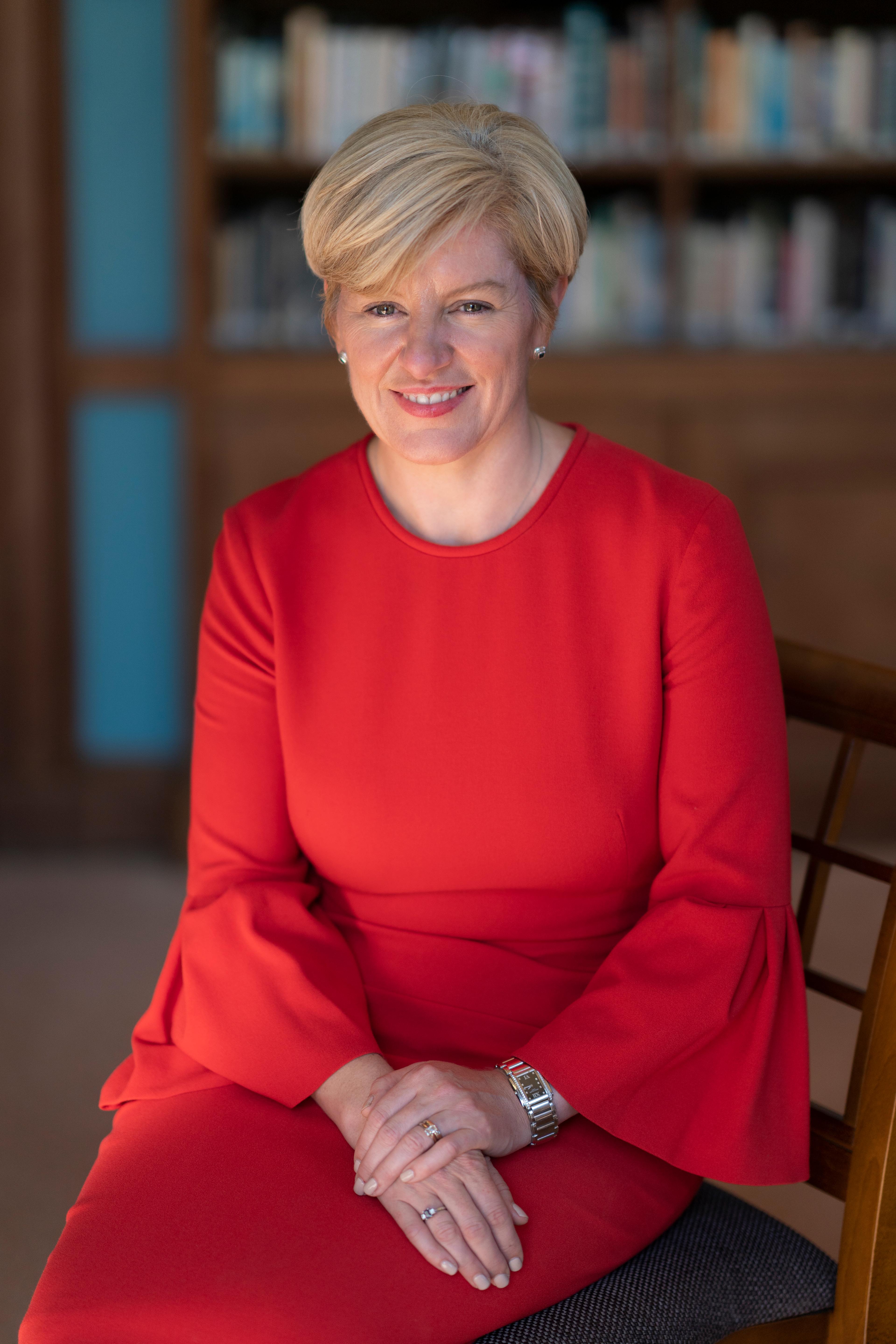
What drew you to a career in girls’ education, and how has your personal journey shaped your vision for Wycombe Abbey?
I spent two summers teaching in Eastern Europe (Hungary and then Romania) while at the University of St Andrews, and this experience convinced me that I didn’t want to become a lawyer – which had been my initial plan. Instead, I decided to pursue a career in teaching.
I enjoyed my PGCE year at Homerton College, Cambridge, immediately following my degree. The teaching practice stints were in two very different comprehensive schools, and I learned a lot from these experiences.
I realised that I wanted to start my career in the maintained sector to build on this experience, but also in an academic environment. The job at The Latymer School in North London provided the perfect opportunity for me to do this.
I always knew I would move into the independent sector at some point, having been educated in a girls’ school myself, making me very comfortable in this setting.
Moving to Benenden, particularly to a full boarding school, was pivotal for me, and this experience has defined the rest of my career, which has been spent in girls’ boarding schools.
When I had my own children, a son and a daughter, I had to decide what I wanted for their education. I was particularly keen for my daughter to be educated in a girls’ school, free from stereotypes and additional social pressures in the middle teenage years that can be particularly prevalent in a co-ed environment.
I love the sense of freedom and opportunity that exists in girls’ schools, and this has shaped my vision for Wycombe Abbey, aiming to be at the forefront of girls’ boarding education and recognized globally as a world-class school.
Dame Frances Dove, the founder of Wycombe Abbey, emphasised education for citizenship. How does this timeless principle continue to influence the school’s approach to education today?
We continue to reflect on the work of Dame Frances Dove and are mindful of her vision for the pupils of Wycombe Abbey. Over the last few years, we have worked hard to embed our School values of Trust, Encouragement, Mutual Respect, Excellence, Dynamism, Innovation, Balance, and Service into everyday school life.
One of our key values is Service, and girls get involved in ‘Give Back’ initiatives. Every Lower Sixth pupil undertakes a placement in a local primary school, and others are involved with local care homes and hospices.
Our Charity prefects organize a range of fundraising events, and within the school, older girls help younger girls with various activities or act as a listening ear through the Peer Listening scheme.
We continue to support charities linked to the school since its foundation in 1896, while two others (one local and one international) are chosen every two years by the girls themselves.
This year, the School’s chosen charities include Mary’s Meals and Wycombe Refugee Partnership. Sixth form pupils volunteer weekly in various local projects such as the One Can food bank and Horizon swimming.
Some of our Seniors have been applauded for their activism and consideration of others, e.g., Soma Sara, founder of Everyone’s Invited, and our pupils also care passionately about the planet.
A sixth former recently had a piece published in Tatler on her sustainability activism.
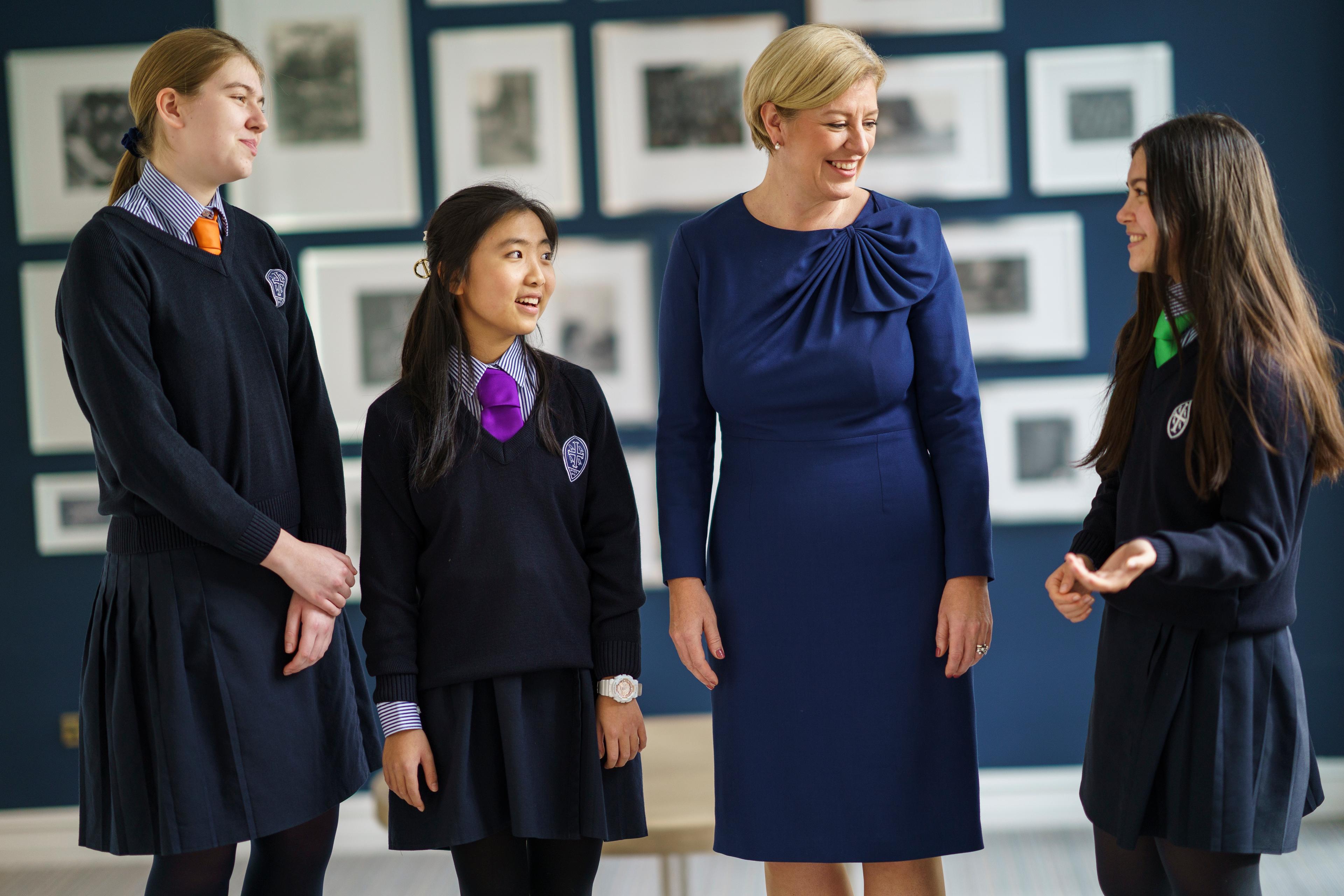
In your role as Headmistress, how do you foster a culture of academic excellence while also encouraging creativity and innovation among the students?
We are fortunate to have an extremely talented group of teaching staff who not only teach the curriculum but well beyond it. There are a wide range of academic and broader enrichment events for all year groups, including lectures by external speakers, our own online Mathematics quiz website, and an impressive University Preparation programme for our Sixth Form, encouraging them to explore their chosen subjects in more depth.
We are passionate about promoting creativity and innovation and are currently in the planning stages of a new Innovation and Design Centre (IDC) where pupils can work together on problem-solving, design thinking, and the development of key skills they will need in the future.
The Art, Design, and Technology departments will be housed within the new facility, which, along with the existing Performing Arts Centre, will create an ‘Arts Quarter’ near the lake.
The IDC will allow for significantly increased capacity over our current facilities and will act as a hub for innovation and entrepreneurship, driving flexible thinking.
‘Making Spaces’ will augment the rigorous specialist teaching we already offer through interdisciplinary learning, visiting speakers, and workshop leaders from the world of industry.
Overall, we believe that our curriculum supports pupils to become broad creative thinkers and problem-solvers who can make a difference today and in the world of the future.
The values of trust, encouragement, and mutual respect are integral to Wycombe Abbey’s community. Can you share a specific example of how these values have positively impacted the school?
One of the highlights of my week is Big School, which takes place on Friday mornings when the whole school gathers for assembly. Both pupils and staff take to the stage, and we celebrate successes and share new initiatives.
I love that there is genuine appreciation for the achievements of others and an atmosphere of encouragement and respect.
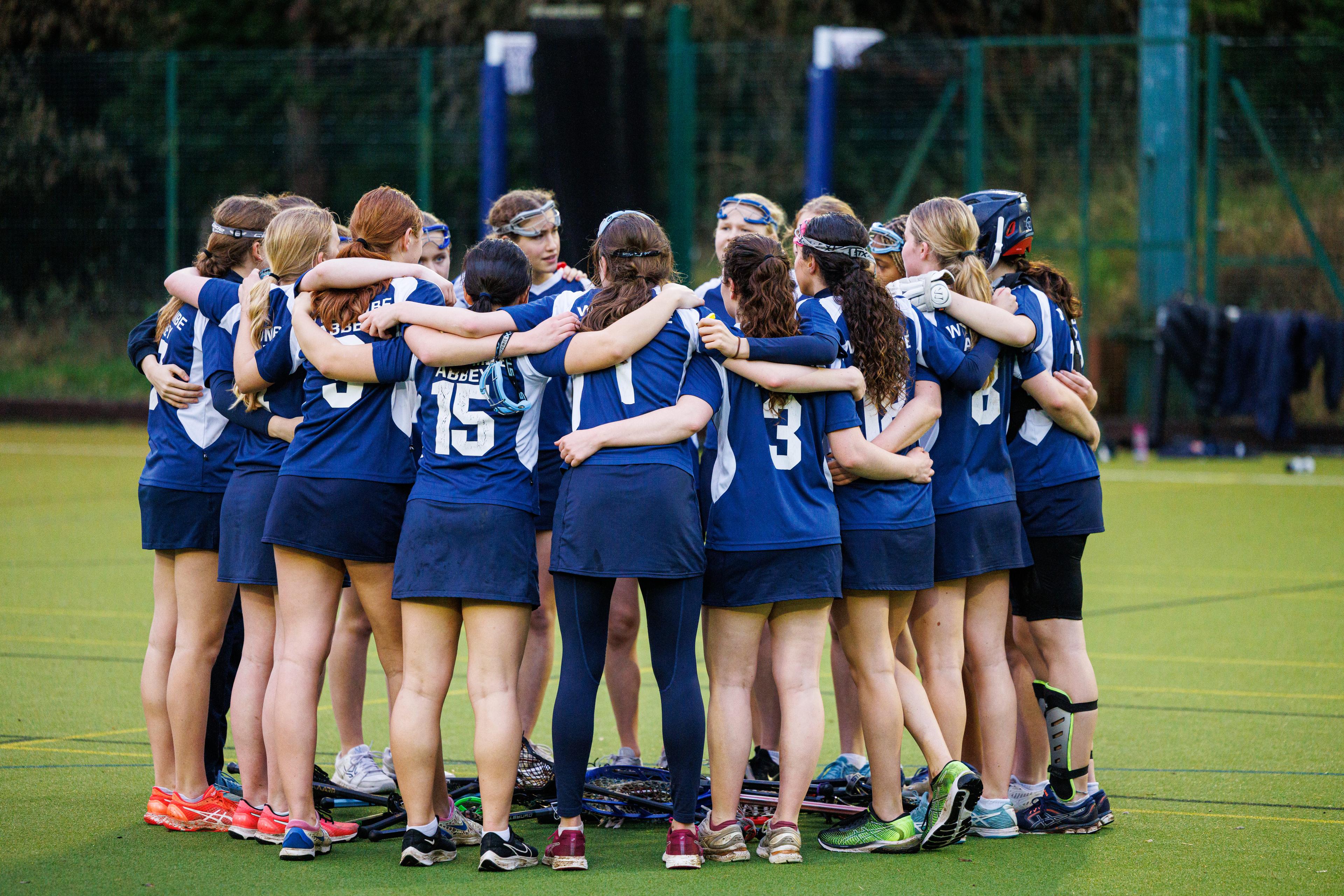
Wycombe Abbey’s rich co-curricular program is designed to help students develop their passions and explore new possibilities. Could you highlight a particularly transformative co-curricular experience that a student has had at the school?
Many of our societies/clubs are pupil-led with a member of staff supporting. We currently have 55 societies, with some established in September 2022, such as the Sign Language Society and the Feminism Society (FemSoc).
Our Societies’ Fair at the start of the academic year is a great way for pupils to see what is on offer and where they can sign up to take part in whatever they find interesting.
We introduced Societies’ Sunday on the first Sunday of the Spring Term. This offered Societies a chance to re-launch after the Autumn Term and showcase what they offer through leading a special event.
Pupils in charge of societies were asked to submit proposals for their special event, such as inviting a guest speaker or hiring equipment for a particular activity.
The day also offered pupils a chance to try out a few activities that their busy timetables don’t usually allow during an average week. Some event highlights:
- A mobile Planetarium with the Astronomy Society
- Themed cookery for Burns Night
- African drumming and mask painting with the African Society
- Stage make-up with the Drama Society,
- Honey tasting with the Bee Society,
- First aid with the Medical Society,
- Indian dance and yoga with the Indian Society ,
- Self-defense workshop with the Self Defense Society,
- Clothes swap shop with the Sustainability Society.
Wycombe Abbey has one of the largest and most active Model United Nations (MUN) societies in the country, with more than 150 pupils taking part.
We hosted a successful School-run conference ‘WASAMUN’ in January 2023 and look forward to attending events at Haileybury and in Bath later in the Spring Term.
Our debating teams are also very active, attending and hosting events both in term time and during the holidays across all age groups.
In today’s rapidly changing world, how does Wycombe Abbey prepare its students to navigate the challenges of a competitive, global, and technology-driven society while also nurturing their character and values?
By building resilience, determination, and resourcefulness, qualities which we call our Academic Qualities.
Building the Innovation and Design Centre will allow us to increase our provision in this area.
Girls are encouraged to think of others and to develop a serving others mindset.
We are committed to numerous and varied outreach initiatives that give girls and staff the opportunity to engage and collaborate with our community. These include:
- A long and established relationship with Cressex Community School, High Wycombe, where pupils visit weekly to help students with literacy and other skills. A number of staff provide support by volunteering as governors and trustees.
- Links to several local primary and senior schools with whom we organize joint ventures, such as our annual Management Conference and a Drama Day, as well as volunteering from our Sixth Formers.
- Valuable links developed with local schools through Science, Technology, Engineering, and Mathematics (STEM) subjects. The Oxbridge STEM and Medicine mentoring that we are taking part in with four London state schools has been a success.
- Our Director of Learning and Innovation runs maths competitions and masterclasses for schools worldwide.
- Pupils and staff regularly volunteer their time to support a wide range of charitable organizations, assisting local playgroups, retirement homes, secondary and primary schools, and local hospices and elderly persons’ homes.
- Our facilities are also available to local schools and community groups. We are particularly proud of our partnership with Horizon, a local sports club for young people with a range of disabilities. Horizon meets at our swimming pool on a weekly basis. Both staff and girls volunteer.
Building strong, meaningful relationships is one of the qualities we believe in.
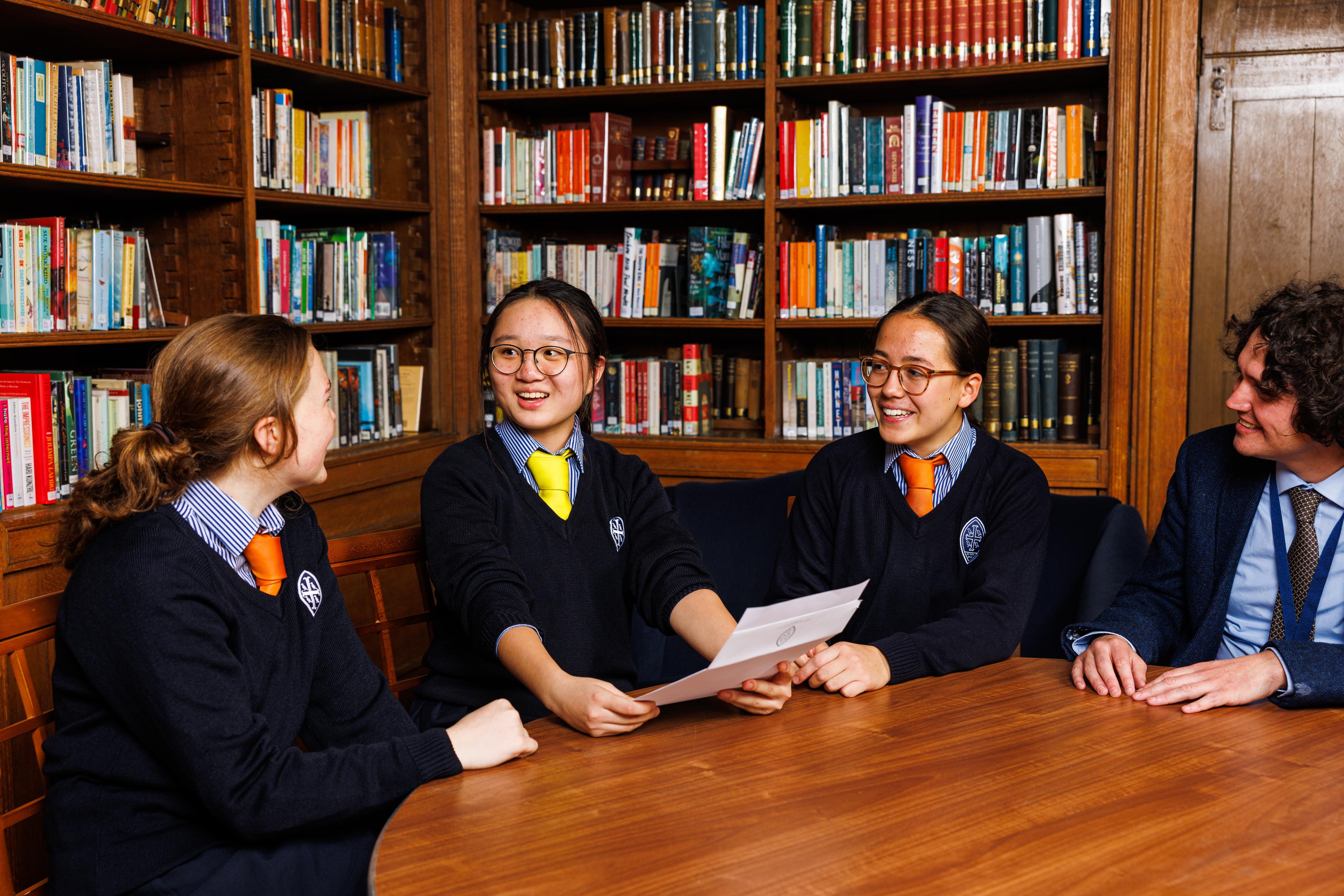
Can you share a story or an initiative that exemplifies the importance of such relationships within the school community?
We have a structure where girls share dorms with girls who are older and younger than themselves; we call these House families. Here is an extract in which one of our Deputy Head Girls, Anoushka talks about this:
‘Becoming a boarder in my Lower Sixth year was probably one of my most exciting times at school. Even as a day girl, you develop such a strong relationship with the staff and girls in your house because you see the girls in your year in your house every morning for tutor time, and house games on a Monday is a great opportunity for the whole house to come together to compete in inter-house competitions. Something that also made a huge difference for me was the house family system.
As soon as you enter your senior house in Lower Four (year 8), you join a house family which means that you have a house mother in the year above you and grandmothers and great-grandmothers in the years above that.
My relationship with the girls in my family tree meant that I came to every dorm feast at the end of term, and so I was truly involved in all the activities that my house had to offer.
This not only made the transition to boarding so much easier, but it also meant that I could not wait to become a full boarder and live with all my friends.’
The school’s commitment to pastoral care through boarding is commendable. How does this aspect of Wycombe Abbey enhance the overall educational experience for the students?
Boarding is central to Wycombe Abbey life, and the physical structure of boarding mirrors a pupil’s journey through her school years. When girls join us at age 11, they are all together in Junior House, a horizontal House that supports their transition into Senior School, into Wycombe, and into boarding, which is often their first experience of being away from home.
Then they move into one of 9 Senior Houses which have a vertical structure, including mixed-age dormitories, and in their final year, they come back together as a year group as they move into Clarence House – not one house but 10 small houses of 10.
In this year, they have more freedom and responsibility as they have a budget and they order their food, cook for themselves, and do their own laundry. This is very much a pre-university experience as they prepare for life beyond Wycombe.
We believe that happy girls will thrive and learn. We ensure they know how to get help when needed, and we have a program which we call Flourishing@Wycombe, and our Deputy Head Pastoral curates a range of external speakers, produces podcasts, and writes a half-termly guide on topics such as optimism, the benefits of sleep and exercise.
We also share resources with our parents via our ‘Parenting the Teenager’ initiative. We recently signed up to The Wellbeing Hub by Teen Tips and have made this online resource available to all staff, pupils, and parents.
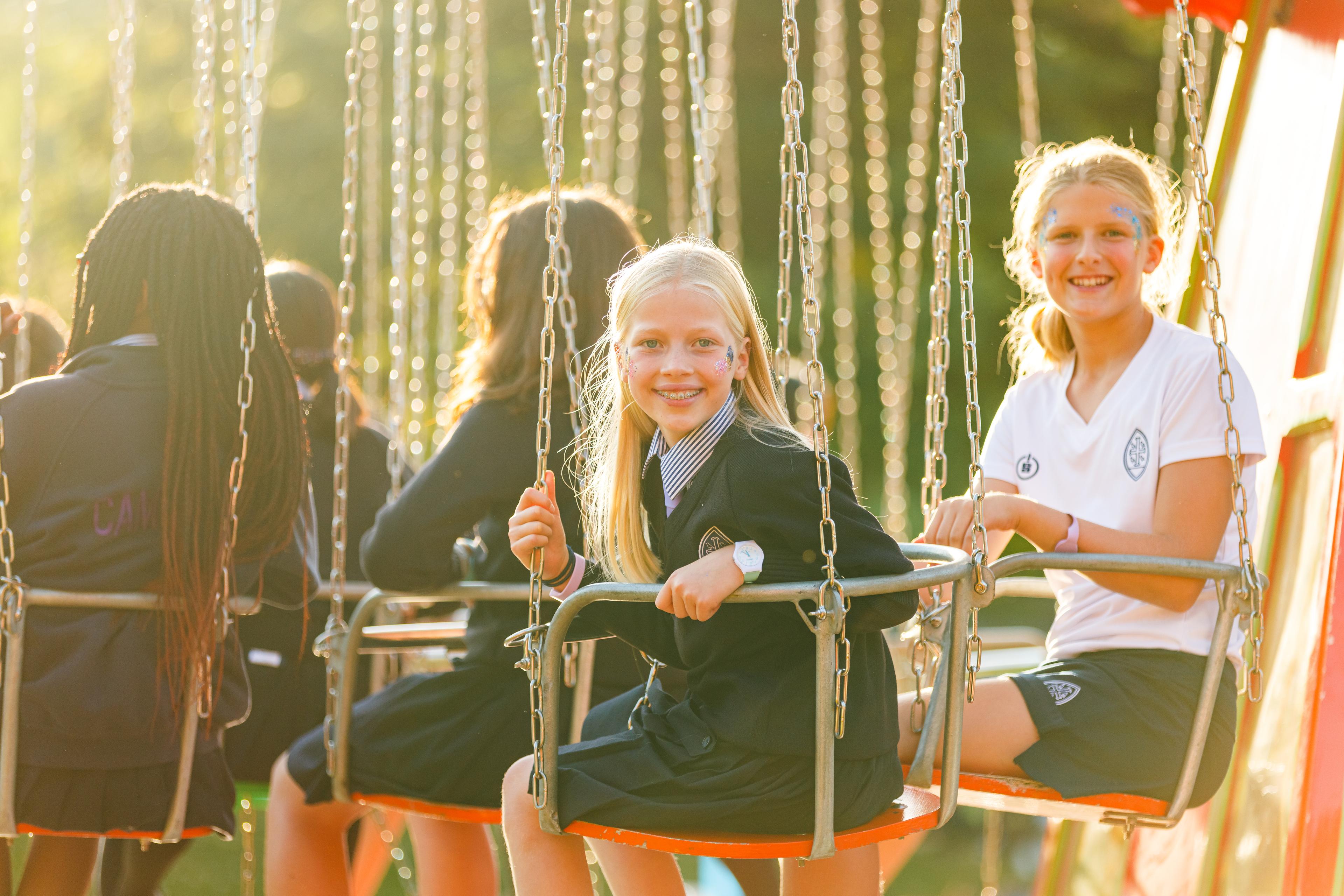
Wycombe Abbey has a remarkable history and has evolved over the years.
Could you highlight a pivotal moment or achievement in the school’s history that continues to inspire its mission today?
We are proud of our illustrious history and the way in which the School has evolved and developed over the years, remaining future-focused and preparing our girls for life beyond school.
We feel our aim to develop tomorrow’s leaders who believe in working hard, but also in serving others and enjoying life outside of work/study, be it through music, drama, or sport, is in line with the vision of our Founder, Dame Frances Dove.
The way the school adapted during the Covid-19 pandemic was a good example of how our community supports one another and pulls together in a crisis.
With families and girls across the world, we not only moved all teaching online, with staff quickly up-skilling and facing this challenge positively, we focused on the importance of remaining a community during this time with pastoral check-ins for every girl, Chapel and Big School online, and opportunities for feedback and support offered.
The school has welcomed prominent figures like King George VI, Queen Elizabeth, and Winston Churchill. How does the school’s history of hosting such dignitaries influence the sense of heritage and pride among students and staff?
Wycombe Abbey was founded on the day of Queen Victoria’s Diamond Jubilee, 23 September 1896, by Miss Frances Dove, later Dame Frances, a trailblazer who promoted equal opportunities for girls in the Victorian age.
The School was established in Loakes Manor, which had been redesigned by the celebrated architect James Wyatt for the first Lord Carrington in 1798.
The first cohort of girls in 1896 numbered only 40, but in just three years, the School was full with 210 pupils. The underlying principle of Dame Frances’ educational thinking was education for citizenship, alongside wide interests and a sense of discipline, as well as an esprit de corps.
All activity was suspended during the Second World War. For the next four years, Wycombe Abbey became known as Pinetree, home to the US Army Eighth Air Force and the largest telephone switchboard in England. Pinetree welcomed a number of high-profile guests at this time.
King George VI, Queen Elizabeth II, Winston Churchill, and Glenn Miller and his band all visited the Abbey. We take time to reflect on our heritage and never forget how lucky we are to be based on such a beautiful, historically important campus.
2021-22 was our 125th-anniversary year, which was a wonderful year of celebration of the School’s founder, history, archives, key moments, and future plans.
In recent years, the school has undergone significant developments, such as the opening of The Courtyard and new Boarding Houses. What do these modern additions signify for the future of Wycombe Abbey?
Continuing our commitment to progress, we are actively planning and constructing facilities for the future. We have drafted an Estates Masterplan to outline our roadmap for improvement and development. Our responsibility extends to preserving the School’s legacy while simultaneously building for the future.
Work to enhance the site has already commenced with the refurbishment of an important space at Wycombe Abbey, known as Big School. This iconic space has been the venue for school assemblies and ceremonies for generations of girls.
Through a meticulous combination of restoration and intelligent redesign, we are delighted with the beautiful space we have created.
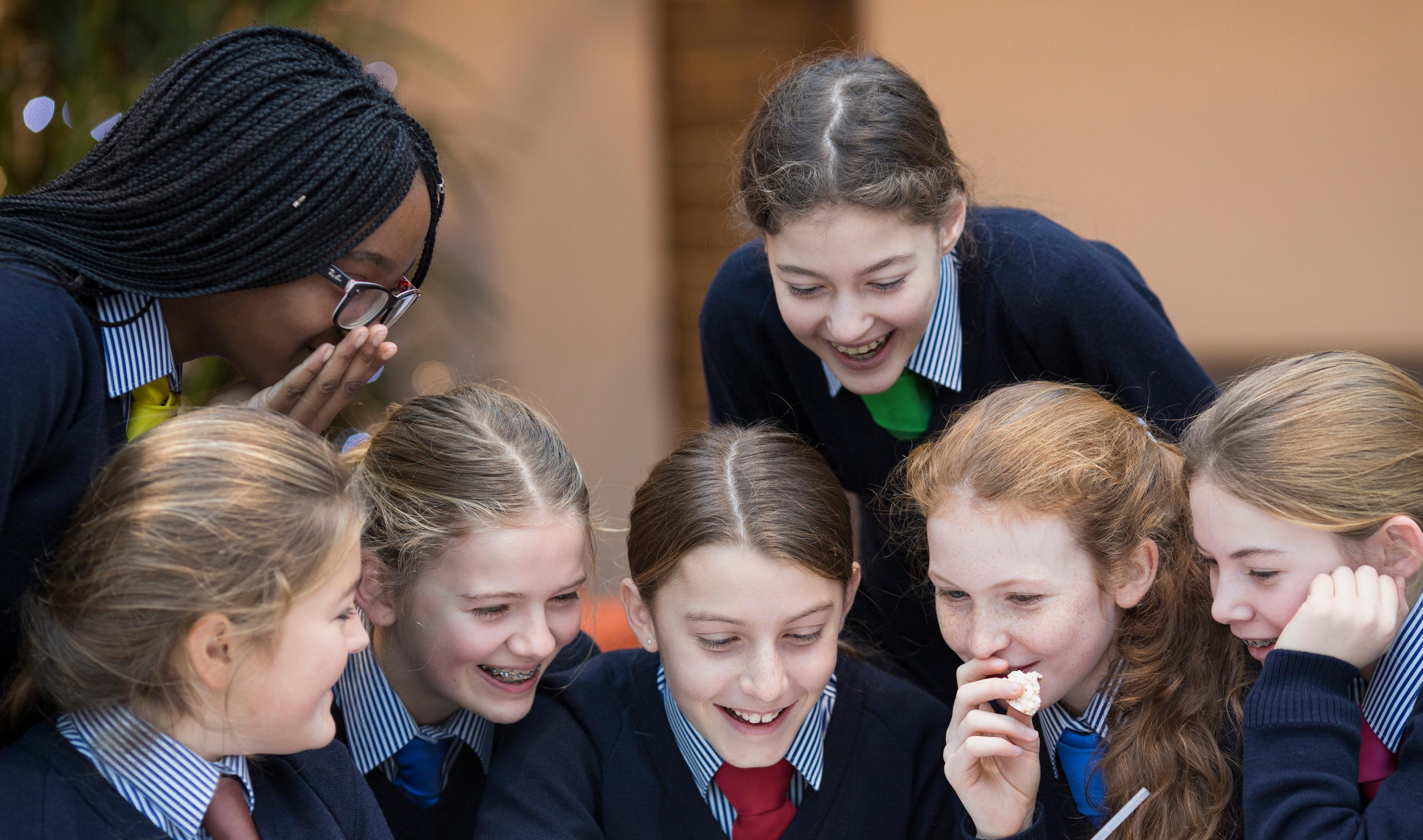
Wycombe Abbey aspires to be a global leader in girls’ boarding education.
What innovative approaches or programs are you implementing to achieve this vision?
To share Wycombe Abbey’s education globally, we have opened three schools in China and one in Hong Kong (International Schools « Wycombe Abbey).
Our next endeavour will be in Egypt (Wycombe Abbey International Cairo East), marking our first school in the MENA region. We are dedicated to transferring the ‘DNA’ from our UK School to our sister schools overseas and view ourselves as a family of schools.
Introducing a Professional Teacher Exchange Programme allows Wycombe Abbey staff to meet and learn from colleagues in world-class schools globally. Active participation in the International Coalition of Girls’ School (IGCS) further facilitates the sharing of excellence among leading girls’ schools worldwide.
If you hadn’t pursued this career, what else would you have enjoyed doing?
If I could do anything, I would be an airline pilot (my understanding of physics and not great eyesight meant this was never going to happen in reality).
Our readers love to travel, what destination is at the top of your bucket list?
I love to travel and have many places I want to go. Japan is currently at the top of my list.
Finally, what advice would you offer to young girls aspiring to make a positive difference in the world, based on your experiences as Headmistress and your own personal journey in education?
Three key pieces of advice:
- Understand your own strengths and weaknesses, and surround yourself with people who complement them, enabling you to make the most significant positive difference in any situation.
- Be ambitious and don’t be afraid to try new things; if it doesn’t work out as planned, ask yourself what you can learn from the experience.
- Always give more than you take.
As our conversation with Jo Duncan comes to a close, the echoes of inspiration linger. In the corridors of Wycombe Abbey, where academic excellence, talent development, faith, and service intertwine, a legacy of empowerment is crafted.
Jo Duncan’s leadership is a beacon, guiding young minds towards a future where ambition knows no bounds. In the spirit of giving more than taking, her words resonate: “Understand your strengths, embrace ambition, and always seek to make a positive difference.”
As we step away from this enlightening encounter, the pages of House of Coco Magazine are imprinted with the essence of Wycombe Abbey’s commitment to cultivating brilliance and empowering the leaders of tomorrow.

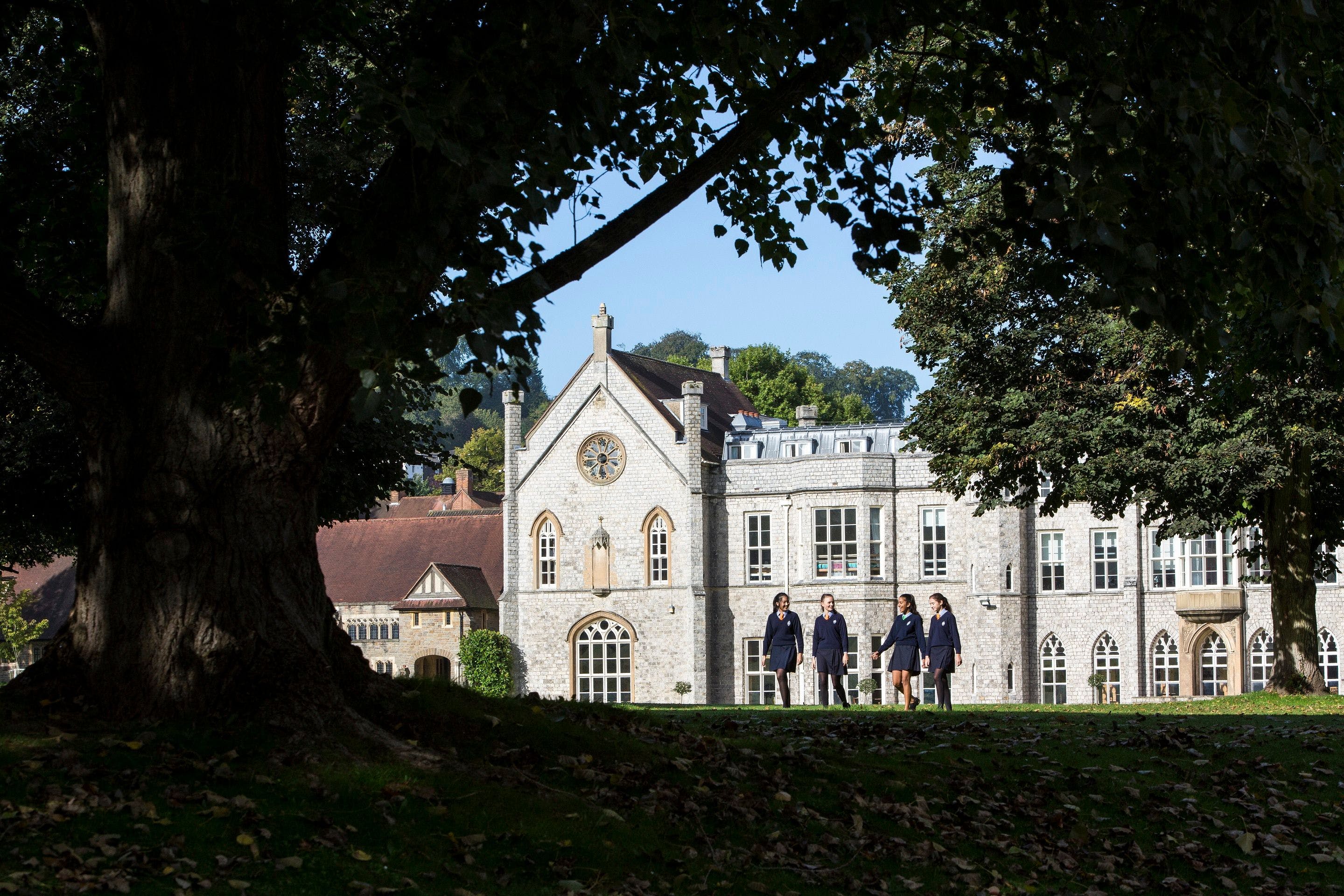
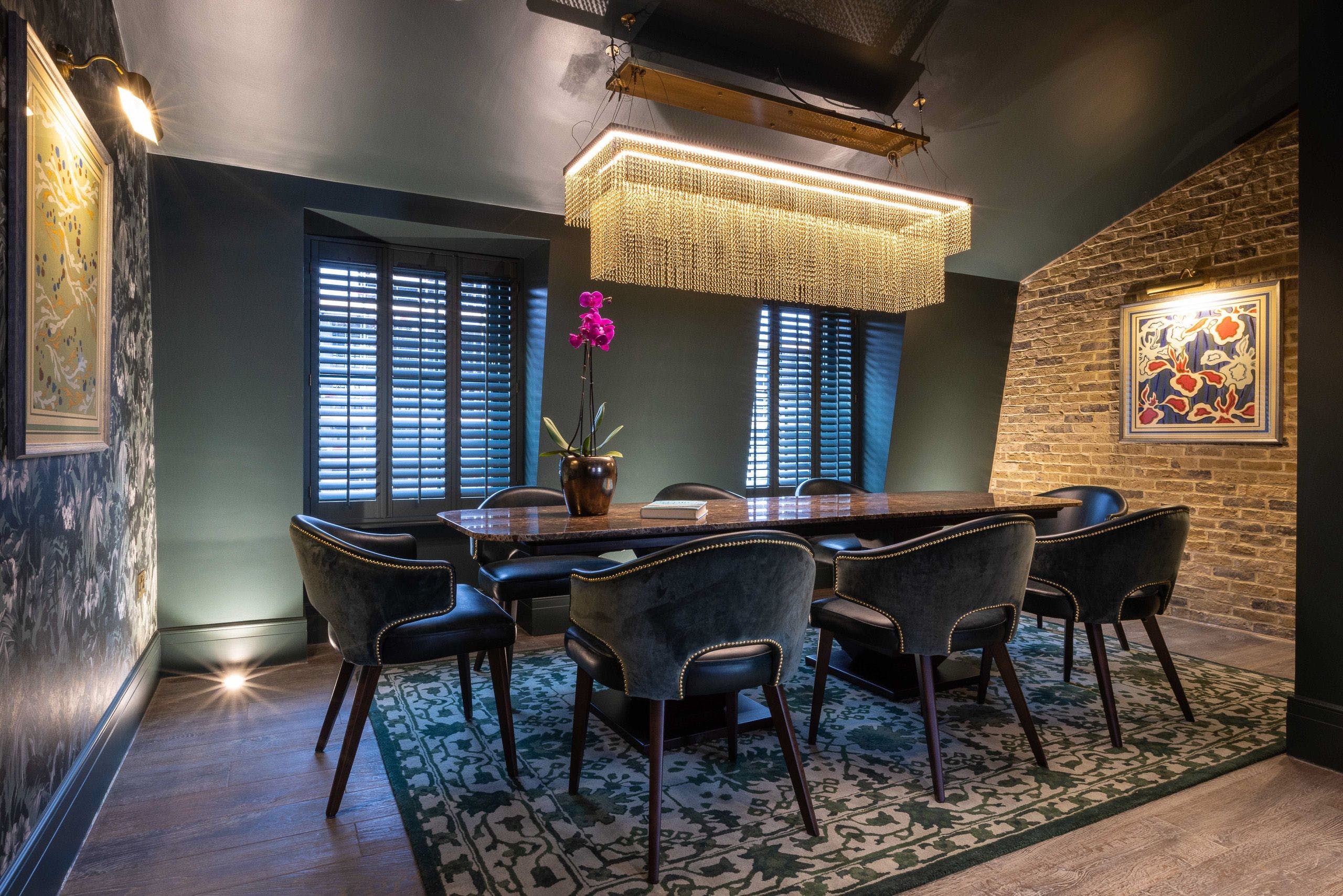
Comments are closed.